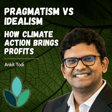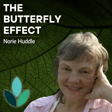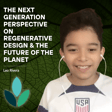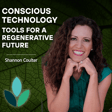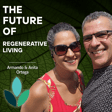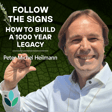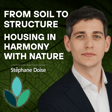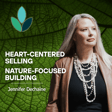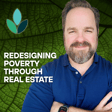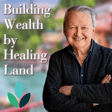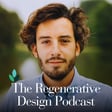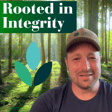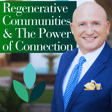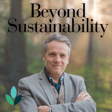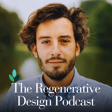
Ep. 24: Charting a Sustainable Future - Lessons from the Ocean and Beyond with Bert terHart
“Nature is this incredibly complex organism, and if you put good things in, good things tend to come out.”
Let me tell you something about the big lessons from life: they often involve water, wind, and a touch of madness. At least, that’s my takeaway after diving into this transcript. It’s all about navigating challenges—whether you’re steering a ship through wild oceans, grappling with complex environmental issues, or simply finding purpose in your daily grind. The principles? Embrace hard things, adapt to what’s real, and never underestimate the power of genuine effort. Adventure, it turns out, isn’t just about going places—it’s about living with intention, whether you’re on a boat or behind a desk.
Our guest, a sailor-turned-scientist-turned-digital-marketer (because why not?), takes these principles to heart. From braving the treacherous Southern Ocean to conducting groundbreaking citizen science, his insights highlight the interconnectedness of everything. He discusses how small, focused efforts—like deploying scientific tools or supporting good policy—can lead to monumental impacts. Whether it’s protecting marine ecosystems or helping others build their digital presence, his stories remind us that tackling tough challenges is worth every ounce of effort.
Bert terHart is an adventurer, oceanographer, and entrepreneur with a knack for turning wild ideas into impactful realities. The first North or South American to complete a nonstop solo circumnavigation of the globe using only a sextant, Bert combines a love for the sea with a passion for technology. As the founder and CEO of Next Generation SEO and Lead Brain AI, he’s not only helping businesses get noticed online but also making waves in environmental research and advocacy.
Learn more and connect:
Bert on LinkedIn
https://www.linkedin.com/in/bertterhart/?originalSubdomain=ca
LeadBrainAI
https://gbpcrush.leadbrain.ai/
Explore these valuable resources to further your journey in regenerative design:
Discover more about Regenerative design at Paulownia Landscape Architects. https://www.paulownia-la.com/.
Dive into the Twelve Laws of Nature and unlock the secrets of harmonizing with our planet at https://www.12lawsofnature.com/.
Fulfill your garden aspirations with expert guidance from the Garden of Your Dreams masterclass at https://www.gardenofyourdreams.com/.
Ready to take actionable steps towards your dream garden? Book a complimentary 30-minute training session with Matthieu for immediate results: https://calendly.com/garden-of-your-dreams.
